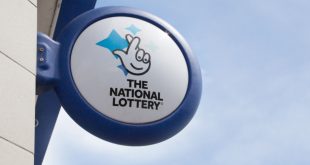In 2019 the UK Gambling Commission (UKGC) launched its three-year National Strategy placing stakeholder collaboration at the forefront of minimising gambling harms. Come 2022, Regulus Partners observes that collaboration is no longer a desired discipline as stakeholders pursue individual actions to tackle gambling’s most complex and pressing matter.
Today is the final day of the National Strategy to Reduce Gambling Harms in Great Britain. It was on 25th April 2019 that the Gambling Commission launched the three-year strategy, announcing that “for the first time health bodies, charities, regulators and businesses will come together in partnership to effectively tackle the issue” of harmful gambling.
The conclusion of the strategy period seems likely to be marked in more muted style than its launch when the then-chair of the Commission, Bill Moyes, predicted “this new strategy will provide us and our partners the opportunity to make faster progress to reduce gambling harms”. There has been no public consultation on a replacement for the Strategy (as there was prior to 2019) or indeed very much in the way of official utterances at all. It is therefore unclear what the official lapsing of the strategy means in practical terms. Philosophers may be prompted to ask ‘if a plan expires in a bureaucracy and no-one hears it, was it ever really there?’
The National Strategy to Reduce Gambling Harms replaced the National Responsible Gambling Strategy – a 12-point plan administered by the Gambling Commission’s independent advisory panel, the Responsible Gambling Strategy Board. The old strategy wasn’t perfect – critically it lacked an implementation plan – but it was at least coherent. There were a dozen strategic priorities with each allocated to a specific organisation (with the exception of those reserved to a rather nebulous entity, labelled ‘the industry’). Over the last three years however, this targeted set of aspirations has been replaced by a chaotic profusion of ‘a thousand flowers in bloom’.
The Gambling Commission’s website describes a vast array of uncoordinated projects grouped together under thematic headings, presented in a fashion seemingly designed to inhibit comprehension. There is every indication of activity but it is difficult to see to what end such energy and resource have been expended.
In its 2020 report, the National Audit Office criticised the Gambling Commission for failure to set meaningful targets for harm reduction. In response to this (we assume), the Advisory Board for Safer Gambling hastily published a number of objectives in its Year One Progress Report on the strategy. These appeared largely aspirational in nature and were unaccompanied by any cogent plans for attainment. One target at least does appear to have been met. If measured by the Gambling Commission’s quarterly telephone survey, the estimated prevalence rate of PGSI short-form ‘problem gambling’ did halve between 2019 and 2021 (down from 0.6% of the adult population to 0.3%); but this seems to have been largely the work of lockdown policies which effectively prohibited most gambling activities in Britain for many months.
The ABSG targeted the elimination of gambling-related suicides without taking the trouble to define the term (for all the commentary, no-one has yet provided a working definition of this most serious of harms) or collecting baseline data (an impossible task without a clear definition). Twelve months later (in the ABSG’s Year Two Progress Report) most of the targets were quietly dropped. It will be interesting to see how the advisory board makes its final determination of the strategy’s success.
Strategic muddle has proved no impediment to the expenditure of vast resources in support of the plan – more than £40m has been allocated to projects from ‘voluntary settlements’, covering treatment, prevention and education and research. A large chunk of this was directed to ensuring sustainability of treatment services through the Covid emergency but other allocations appear more questionable. In 2018, the Centre for Public Scrutiny was (with more than a hint of irony) paid £103,200 to produce a report on “local authority scrutiny processes to understand and tackle gambling-related harms”.
So far as we can tell, this yielded a 12-page report (of which only seven-and-a-half pages related to gambling) which did little more than summarise local authority discussions on gambling-related harm. It is unclear what effect the production of this rather costly report has had on harm reduction. Recipients of voluntary settlements are not accountable to the Commission or anyone else for how the money is spent and no evaluation is asked for (the regulator marks projects as “achieved” on the basis of money spent rather than outcome). Indeed, it is not even a requirement to conduct the work for which the money is awarded and there has been at least one instance of a recipient unilaterally deciding to do something different with the cash than had been agreed. All of this appears to be in direct contradiction of the directives given to the Commission by both the National Audit Office and the Public Accounts Committee. Given the quantum of funds involved, there may be grounds for the NAO to pay another visit to the regulator before too long.
The Strategy had been touted as an exercise in collaboration. Three years ago, Moyes trumpeted “the success of this strategy relies on everyone working together to reduce gambling harms…everyone has a role to play”. Unfortunately, this important ethic has been undone by the behaviour of key stakeholders. The ink was barely dry on the Strategy when the ABSG decided to adopt a policy of non-engagement with the gambling industry (a remarkable act of planned ignorance and likely a sign of ideological intolerance). Leading figures in the NHS have repeatedly attempted to undermine the work of the charitable treatment providers who support more than 90% of those receiving specialist help for gambling disorder – calling for these organisations to be defunded under the Government’s plans for a statutory levy which is now hoving ominously into view. Many licensees have only the loosest sense of what is expected from them in relation to the Strategy over and above compliance with the ever-changing Licence Conditions and Codes of Practice.
The Strategy has of course played out during a period of uncertainty occasioned by both the Covid emergency and the Gambling Act Review, even if the latter of these was both predictable and predicted. Good strategies should however be designed in such a way as to allow for agile responses to unforeseen events. At present it is not clear whether a new strategic plan will be forthcoming or whether the Commission is waiting for completion of the Gambling Act Review to resolve the muddle.
The Commission has undergone a change of management since the Strategy was launched and is therefore in a position to review it without the baggage of emotional or intellectual attachment. In our view, this represents an opportunity to go back to basics. First, to prioritise action and direct resources to achievement of the things that will do most to address harm (something that requires definition) within whatever time-period is adopted; second, to set meaningful, realistic and measurable targets; third to engage actively and without discrimination with all of the major stakeholders (i.e. those in a position to generate the greatest impacts) to develop practical plans to achieve those targets; fourth, to foster a genuine spirit of collaboration (in keeping with the true principles of public health) and to come down hard on those who seek to sow division; and finally to communicate the objectives in a way that can be understood by all and to ensure that progress reporting is honest, transparent and free from bias – and that it serves a practical purpose in determining how harm prevention programmes evolve.
______________________
Featured article edited by SBC from ‘Winning Post’ Sunday 24 April 2022 (click on the below logo to access the full unedited analysis of Winning Post).










